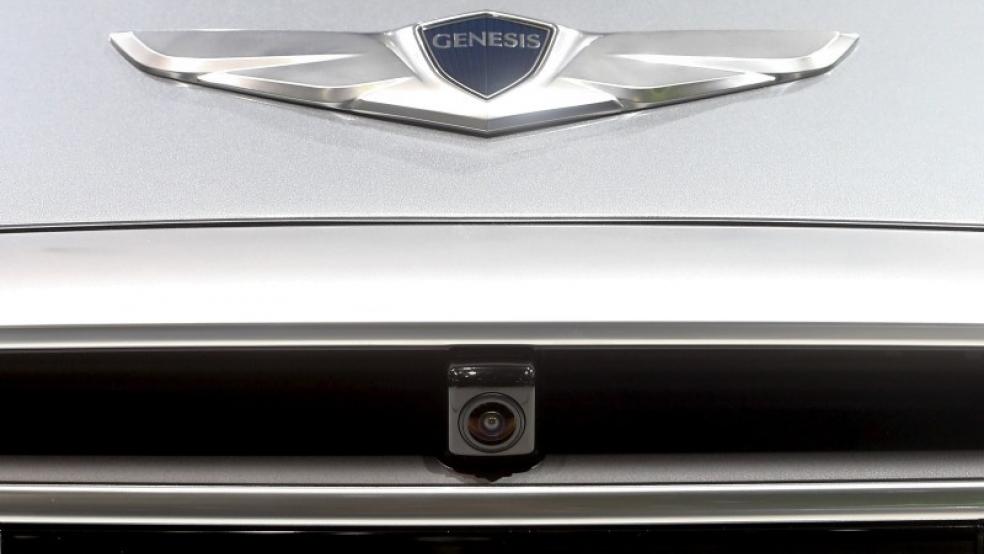BEIJING (Reuters) - South Korean automaker Hyundai Motor Co appears set to launch a standalone global premium product line-up, to be called Genesis, as it seeks to boost profitability which is being squeezed by a strong won currency.
Hyundai is expected to announce the move as early as Wednesday, three people close to the company said.The maker of the Sonata midsize sedan and Santa Fe crossover sport utility vehicle (SUV) plans to launch Genesis as a separate global brand, though the line-up is likely to be sold through the existing Hyundai-brand distribution channel – at least for now, said one of the knowledgeable individuals.Hyundai launched a luxury midsize sedan called the Genesis in 2008, as well as a related coupe model. It later added a remodeled Equus as a flagship sedan to that upscale line-up.Those cars will form the core of the Genesis line-up, with a midsize SUV to be added by around 2019, the three individuals said. The Equus would likely be renamed."A small line of upscale products is going to be sold under the Genesis brand name. It's not a physically separated brand with its own channel," one of the knowledgeable individuals told Reuters, adding Hyundai, for now, thinks that setting up a separate channel of Genesis stores carries too much risk.The planned move would go some way to fulfilling Hyundai Chairman Chung Mong-koo's long-held ambitions to take the automaker more upmarket.Hyundai Motor declined to comment.PREMIUM PROSPECTSHyundai decided around a decade ago not to set up a standalone upscale brand, but instead tested the water with the Genesis models.At that time, external advisers cautioned Hyundai wasn't ready to move to a standalone luxury brand, and should concentrate first on strengthening the core Hyundai brand. A well-known Detroit-based product and marketing expert warned the Korean firm then that Japanese rival Toyota Motor Corp spent around $5 billion to build its Lexus luxury marque from scratch, and took a decade to break even.Now, though, Hyundai faces a profit squeeze from a strong Korean wonHyundai to push into premium auto market with standalone Genesis brand: sources

ARND WIEGMANN



